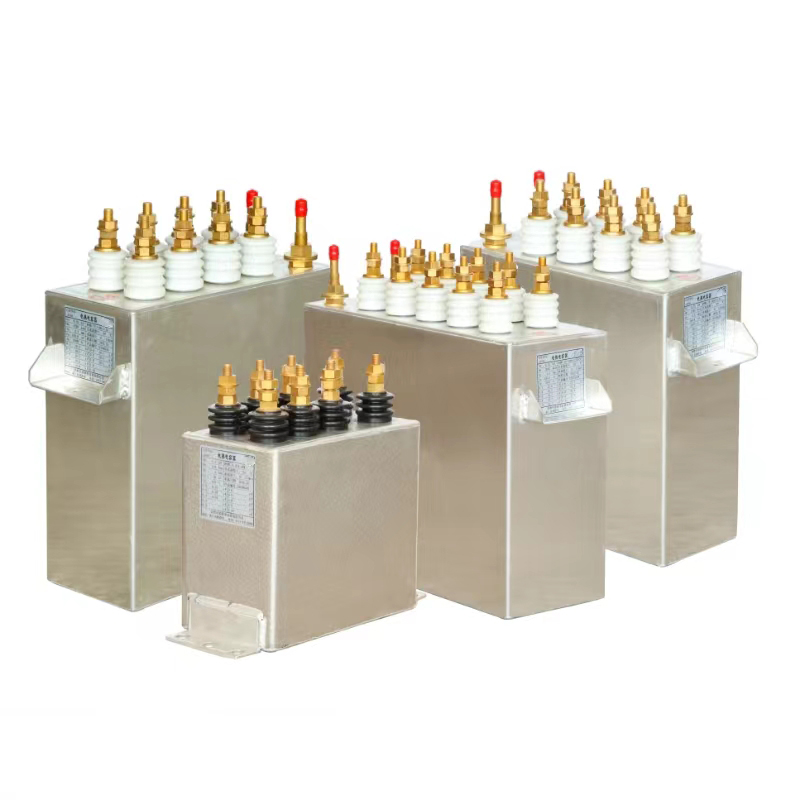- All
- Product Name
- Product Keyword
- Product Model
- Product Summary
- Product Description
- Multi Field Search
Views: 0 Author: Site Editor Publish Time: 2025-08-15 Origin: Site











Power capacitors are fundamental components in a wide range of industrial electrical systems. They help stabilize power supplies, improve energy efficiency, and ensure smooth operation of complex equipment. Among these, induction heating capacitors are specially engineered to meet the demanding requirements of induction heating systems, which operate at medium to high frequencies and handle significant electrical stresses.
Induction heating capacitors are crucial because they directly influence the efficiency, reliability, and longevity of induction heating systems. Their role extends beyond mere energy storage—they tune circuits to resonance, correct power factor, and help reduce energy losses. In modern industry, choosing the right induction heating capacitors is vital to achieving optimal performance and cost savings.

Induction heating technology works by creating an alternating magnetic field that induces currents within a metal workpiece, generating heat. The efficiency and control of this heating process depend largely on the electrical components used, particularly the induction heating capacitors.
These capacitors are designed to endure high voltages and currents, and they operate at frequencies that can vary widely depending on the application. Their primary function is to form resonant circuits with the induction coils, maximizing the energy transferred to the workpiece and improving the power factor. A well-matched induction heating capacitor ensures that the system operates at peak efficiency, minimizing wasted energy and preventing damage to other components.
Materials used in these capacitors typically include high-quality film dielectrics such as RFM and RAM types. The capacitors are often available in various cooling configurations—air cooled, water cooled, or self-cooled—to match different operational demands and thermal environments.
Selecting the right induction heating capacitors requires understanding several critical parameters:
Voltage Rating: The capacitor must safely withstand the maximum voltage encountered during operation, including transient spikes. Overrating the voltage provides a safety margin that enhances reliability.
Capacitance and Reactive Power: The capacitance value determines how much reactive power the capacitor can supply, affecting the resonance and power factor correction capabilities of the system.
Frequency Range: Induction heating applications span a wide frequency spectrum. Medium frequency induction heating capacitors are typically used for general industrial processes, while high frequency induction heating capacitors cater to precision heating and ultrasonic applications.
Cooling Method: Thermal management is essential since capacitors generate heat during operation. Water cooled induction heating capacitors are often used in high-power scenarios to maintain optimal temperature, while air cooled or self cooled capacitors may suffice for less demanding conditions.
Dielectric Material: High-quality film dielectrics like RFM and RAM provide excellent insulation, low losses, and superior thermal stability, which are crucial for maintaining capacitor performance at high frequencies.
High frequency induction heating capacitors are critical for advanced industrial processes requiring rapid, precise heating. Operating at elevated frequencies imposes stringent requirements on capacitor design to minimize energy loss and withstand thermal stress.
These capacitors feature low equivalent series resistance (ESR) and low equivalent series inductance (ESL), enabling efficient energy transfer with minimal heating of the capacitor itself. Their robust construction supports stable operation even under demanding electrical conditions.
By enabling higher frequency operation, these capacitors allow manufacturers to achieve finer temperature control, faster heating cycles, and improved product quality. Industries such as automotive manufacturing, electronics, and metal processing rely heavily on high frequency induction heating capacitors to meet stringent process specifications.
Power factor correction is a primary advantage of incorporating induction heating capacitors in industrial systems. Induction heating loads typically cause poor power factor due to the reactive power they consume, leading to inefficient use of electricity and higher utility costs.
By providing reactive power compensation, induction heating capacitors improve the overall power factor, reducing the apparent power drawn from the grid. This leads to several benefits: lower energy bills, reduced losses in electrical infrastructure, and decreased carbon footprint.
Optimizing power factor with the right induction heating capacitors not only cuts costs but also helps industries meet energy efficiency regulations and sustainability goals.
While designed for durability, induction heating capacitors can suffer from failures if not properly selected or maintained:
Overheating: Excess heat accelerates capacitor aging and can cause dielectric breakdown. Proper cooling, especially in water cooled induction heating capacitors, is vital to prevent thermal damage.
Electrical Overstress: Operating above voltage or current ratings may cause insulation failure and short circuits.
Cooling System Problems: For water cooled capacitors, blockages or contamination in cooling channels can lead to overheating and premature failure.
Mechanical Vibrations: Industrial environments may subject capacitors to vibration, potentially loosening connections or damaging internal components.
Regular inspection, ensuring clean and effective cooling, and adhering to manufacturer installation guidelines are essential to prolong capacitor life and maintain system reliability.
Innovation continues in the development of induction heating capacitors, with manufacturers focusing on improved materials, smarter monitoring, and greater customization.
New dielectric films are being developed to handle even higher frequencies and temperatures with lower losses. Integration of sensors into capacitor units allows real-time monitoring of temperature, voltage, and performance, enabling predictive maintenance and reducing downtime.
Additionally, modular and customizable capacitor banks are gaining popularity, allowing engineers to tailor solutions precisely to application needs, enhancing flexibility and efficiency in induction heating systems.
The performance and efficiency of industrial induction heating systems depend heavily on the choice and maintenance of induction heating capacitors. Understanding the technical requirements—such as voltage, capacitance, frequency, and cooling—is essential for selecting capacitors that will deliver reliable and efficient operation.
By investing in high-quality induction heating capacitors with appropriate specifications, industries can achieve better energy efficiency, lower operating costs, and longer equipment life. As technologies advance, staying informed about the latest trends and solutions ensures that your induction heating systems remain competitive and sustainable.
For optimal results, consulting with capacitor manufacturers and experts can help identify the best induction heating capacitor solutions tailored to your specific industrial needs.